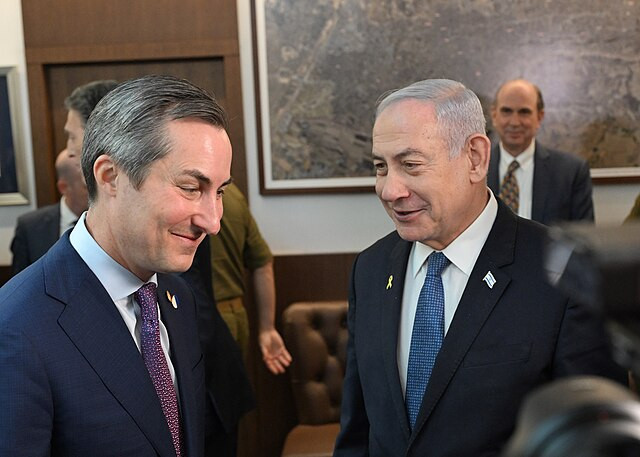Israel's security cabinet on Friday approved a plan to seize Gaza City, signaling a potential escalation in the nearly two-year war with Hamas that has already killed tens of thousands, displaced most of Gaza's population, and driven the territory toward famine.
The decision, announced by Prime Minister Benjamin Netanyahu's office, calls for the military "to take control of Gaza City while providing humanitarian aid to the civilian population outside the combat zones." Netanyahu told Fox News ahead of the meeting, "We intend to, in order to assure our security, remove Hamas there," adding, "We don't want to keep it. We want to have a security perimeter."
Hamas denounced the plan as a "full-fledged war crime" and warned it would come at a "high cost." In a statement, the group said the move "constitutes a new war crime" against the city's residents and accused Israel of using the term "control" instead of "occupation" to evade legal responsibility. The group also charged that the plan reflects "reckless disregard for the lives of prisoners in pursuit of failed political delusions."
Military chief of staff Lt. Gen. Eyal Zamir has reportedly cautioned that expanding the offensive could jeopardize the roughly 20 hostages Israel believes are still alive in Gaza and further strain its forces after nearly two years of regional conflicts.
The move has triggered a wave of international criticism. British Prime Minister Keir Starmer said Israel's "decision to further escalate its offensive in Gaza is wrong" and urged both sides to "step away from the path of destruction." Australian Foreign Minister Penny Wong warned that "permanent forced displacement is a violation of international law." Russia's U.N. ambassador Dmitry Polyanskiy called the step "a very bad step in an absolutely wrong direction," while Turkey said it "constitutes a new phase of its expansionist and genocidal policy in the region."
Other leaders voiced concern over worsening humanitarian conditions. Switzerland's foreign ministry said the escalation "risks further deteriorating the already catastrophic humanitarian situation," and Spain's foreign minister José Manuel Albares wrote on X that it would "only lead to further destruction and suffering." The Netherlands' foreign minister Caspar Veldkamp called it a "wrong move" that "will also not help to get the hostages home."
The timing of any ground offensive is unclear. A large-scale operation would require mobilizing thousands of troops and evacuating civilians, raising the likelihood of further humanitarian disaster. Gaza City remains one of the few areas not under Israeli buffer zones or full evacuation orders, and a new push could displace tens of thousands more and disrupt food deliveries.
Mediators from Egypt and Qatar are pursuing a framework that would release all hostages-alive and dead-in exchange for ending the war and withdrawing Israeli forces. Two Arab officials told the Associated Press the plan, backed by a powerful Gulf state, envisions a Palestinian-Arab committee overseeing reconstruction and a new police force trained by U.S. allies. The proposal remains under negotiation, with disputes over Hamas' disarmament.
Since the conflict began with the Oct. 7, 2023, Hamas-led attack that killed around 1,200 people in Israel and abducted 251, Israel has launched repeated airstrikes and raids on Gaza City. Local hospitals said at least 42 Palestinians were killed Thursday in strikes and shootings, including 13 seeking aid in an Israeli military zone in southern Gaza. Gaza's Health Ministry, part of the Hamas-run administration, says more than 61,000 Palestinians have been killed, a figure the United Nations considers the most reliable estimate.






